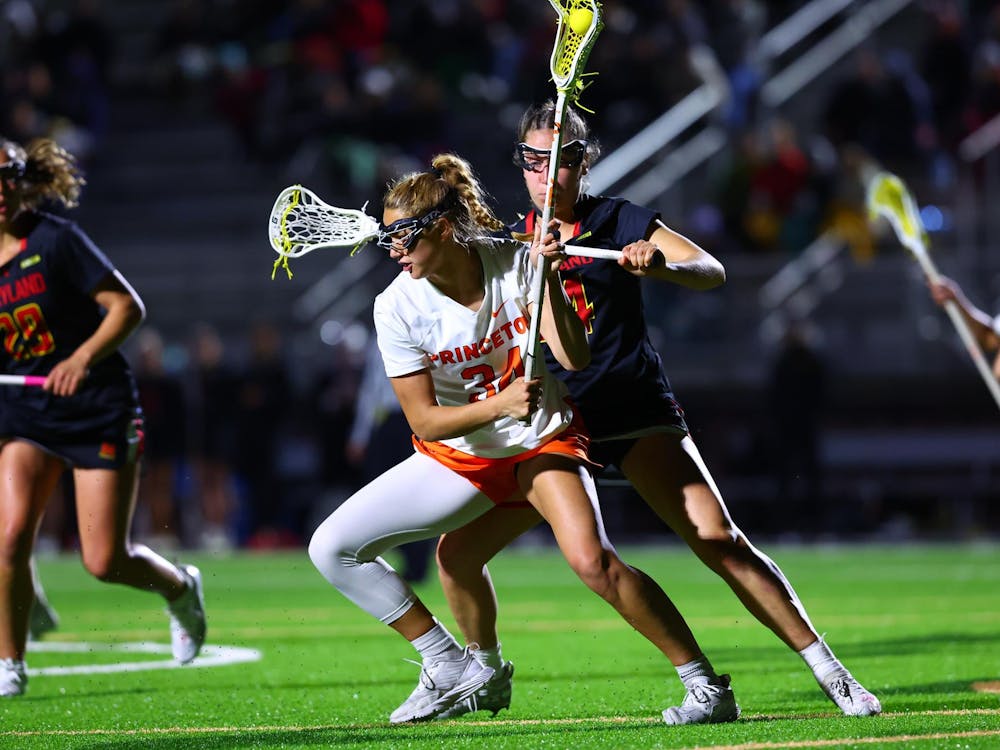Go to U-Store. Online or in person, doesn’t matter. Buy a Princeton University shirt or hoodie. Make sure that the big, orange letters of “Princeton” are emblazoned across the front. Wear the gear to the airport. Enjoy not getting stopped by the metal detector that always mysteriously beeps when you get close to it.
It’s worked every time for me. It’s kept me from having to stand in a humiliating position with my hands up and legs spaced apart as a Transportation Security Administration agent searches over my body for proof that the color of my skin is dangerous. Instead, I get to watch the Sikh person behind me walk through a beeping metal detector.
Although it is likely a coincidence that the Princeton hoodie has protected me from the TSA, it got me thinking about what it means to be from a marginalized group in America but to also belong to the privileged group that is Princeton. To be at the University is to belong to the elite. But how do you reconcile with the fact that once you take the hoodie off or erase Princeton University from your resume, you sink right back into marginalization?
I believe that the University confers a certain privilege even to people who belong to traditionally marginalized communities.
Many of the benefits we have as a result of being Princeton students could hardly be considered privileges. The ability to speak our minds without being physically hurt. Access to safe spaces. The capacity to have our voices be heard. The potential to go out into the world and be treated as though we could potentially have something to say that might be worth hearing.
However, there are a whole set of privileges that come with being a Princeton student that we share with our less marginalized peers. For example, the incredible access we have to important people in academia and the world. There’s also the resume booster that Princeton’s very name provides. Then there’s our elite eating club culture, our expectation of what a campus should provide us with, our lack of wonderment at how much money the University casually throws around for clubs, research, programs, and much more. We are coddled to the point of privilege.
In a way I think it’s wonderful. It allows us to beat our circumstances. But it means we can no longer entirely claim the identity of the marginalized.
The point I’m trying to make is epitomized by the story Morgan Jerkins ’14 tells in her article for The Guardian. She calls herself a “gentrifier in Harlem.” Whereas she does belong to the African-American community, she is no longer able to identify with the extremely marginalized because she herself has risen to a social status afforded to her by a Princeton education and the resulting earning potential. In fact, she counts herself among those who are making it harder for African-American communities to exist in historically black areas like Harlem.
Jenkins occupies a place of privilege. Her recognition of it makes the conversation much more complex. I think we, marginalized people, should take a leaf out of her book and acknowledge our privilege because it will give us more license to point out why we still retain the right to resent the systems of power that give our white peers much more privilege than we can rope up even at this elite university.
It is important to acknowledge this privilege because it is the first step to having a balanced conversation about what it means to occupy a place of privilege. Of course, our white peers will be treated like respectable human beings with or without the Princeton name. But we occupy a place that is slightly above the people in our marginalized communities.
I am not saying that there isn’t racism or sexism on campus and in the world at large. There’s lots of it, but it doesn’t negate the fact that we, as Princeton students, are given a better lot in life just because of the fact that we fell into the small minority of people whose hard work paid off.
I get stopped every single time when I go through security. And when I wear my hoodie with the large orange letters on it, I feel a bit of self-satisfaction that there’s a great chance that Princeton will save me from discrimination. Maybe the privilege is in my mind, but I can’t shake the feeling that it’s very much made me a different person. I need to acknowledge that to have a productive conversation about privilege in our society.

Bhaamati Borkhetaria is a sophomore from Jersey City, N.J. She can be reached at bhaamati@princeton.edu.








